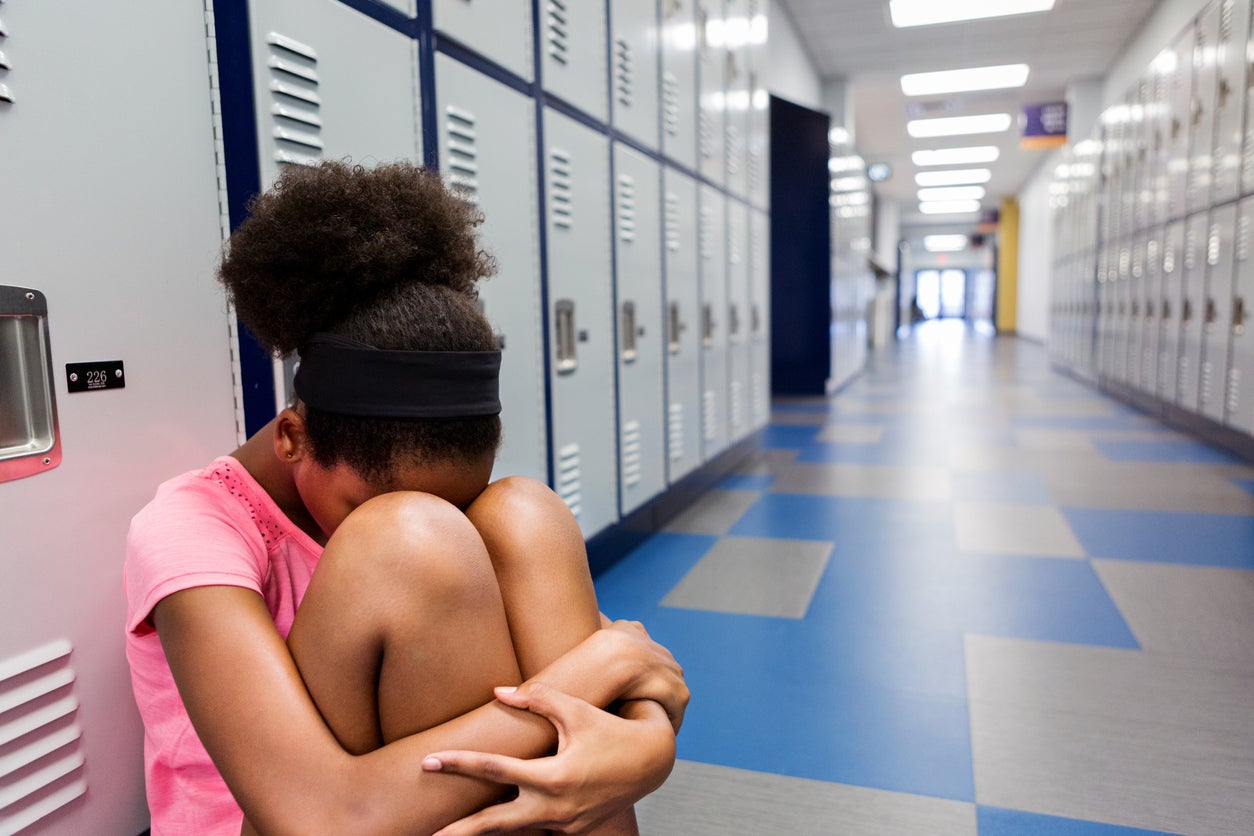My niece came home from nursery once in tears, asking ‘why is Black bad?’
Damaging patterns of institutional racism repeat themselves in the lives of many children, taking hold in school, and recurring in later education and the world of work


In primary school, I felt unsupported while struggling with racist bullies – pupils mocked my face, hair, name, and accent. It followed me home as cyberbullying, with some even telling me to kill myself.
Tragically, this is more common than most people realise in Britain. According to a 2020 Statista poll, 95 per cent of young Black people in the UK reported witnessing or hearing racist language at school. Thirty-one per cent said this happened all the time; and 21 per cent described it as a rare occurrence.
My experiences fell within the remaining 48 per cent. There were fleeting moments of belonging, thanks to some people’s kindness, but also the jarring reality of being “othered”. I felt powerless. Many of my friends from ethnic minority backgrounds, and family members, have faced the same challenges.
My niece came home from nursery once in tears, asking “why is Black bad?”. She told us how classmates had made fun of her beautiful skin tone, stating it was “the colour of poo”. Our family fought to get members of staff at her school to take these issues seriously, and we struggled further to get them to hold parents to account for their children’s behaviour.
We are doing our best to break the cycle of racism in British schools. My family is standing up for my niece in ways they didn’t feel they could when similar things happened to me. This includes affirming her self-worth, no matter what she’s experienced.
I carried insecurities, low self-esteem, and very real fears about not fitting into high school and extracurricular activities. These experiences led to anxiety, depression, and other challenges.
Damaging patterns of institutional racism repeat themselves in the lives of many children, taking root in school, and recurring in later education and the world of work. The weight of it makes many of us feel tired before our years, having to overcome the same cycle through microaggressions, slurs, abuse, and several added disparities.
Difficult as it was, I reported my own experiences of racism. At first, I thought I was fortunate to have help, but I soon found myself being interrogated by those “assisting” me. I felt they didn’t believe me.
Years later, when accessing counselling services at university, I again felt like I was somehow to blame. This time for a serious sexual assault. In my experience, Black girls are rarely afforded vulnerability. I had been referred to the top of the long waiting list after making an official report, which was investigated with rounds of questioning from 12 faculty members who confirmed the veracity of my statement. The psychologist gave the impression that this one-off session was a waste of their time, and asked whether it was my fault.
On many occasions, I’ve noted a lack of racial literacy among educators and staff, some teachers have even used racial slurs in front of me, and one told me to go back where I came from, for speaking up against being likened to a slave.
Basic cultural awareness could have made a huge difference to my experience in educational facilities. The Guardian recently reported that there were more than 60,000 racist incidents recorded in schools in the past five years, and this, I fear, could be the tip of the iceberg.
My difficulties were compounded by cultural differences. As an immigrant, I was grateful for new opportunities and did my best to carefully navigate a new country. Naively maybe, prior to arriving from Zimbabwe in the early 2010s, I didn't anticipate feeling as out of place as I did, given the shared Commonwealth history of our nations. This separation transpired through the syllabus, too; the realities of how the British Empire built its wealth is conveniently sidelined in the national curriculum and from public discourse.
As a Black child, I learnt over and over again that I had to be twice as good to be treated similarly to my classmates, there was no room for failure. Data from The Young Black Experience of Institutional Racism in the UK study shows that half of students in the UK feel their teachers’ perception of them was a barrier to achieving; 49 per cent of those surveyed attributed the latter to overall racism.
Through volunteering and activism, I assist education charities with improving racial awareness and reimagining systems to tackle root causes of racism, and we address the impact of systemic issues – the links from school exclusion to Pupil Referral Unit to prison. I strive to make a positive difference and inspire people from all races. I hope to help make things better for the next generation, so that every child can thrive in their education.
Today’s youth are more determined than ever to champion causes and call out inequity. We have hope. We’re turning our perceived powerlessness into power, by coming together and tackling institutional racism.
If you are experiencing feelings of distress and isolation, or are struggling to cope, Samaritans offers support; you can speak to someone free of charge over the phone, in confidence, on 116 123 (UK ) or visit the Samaritans website to find details of your nearest branch